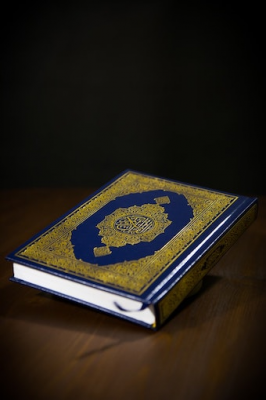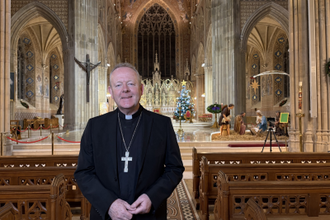India: Letter to Christians for start of Ramadan

Photo by GR Stocks on Unsplash
To My Fellow Christian Brothers and Sisters
Dear Brothers and Sisters,
Muslims around the world have begun the month of Ramzan (Ramadan) with fasting, prayer and almsgiving. They will be fasting from dawn to dusk for the next 29/30 days, till May 2/3, 2022.
It may be of interest for Christian friends to know that the Muslim months follow the lunar calendar. A lunar year is approximately eleven days shorter than the solar year. Thus, the month of Ramzan moves through the seasons. With summer days longer and hot, it will be physically challenging to fast during these days. Over the next few years, as Ramzan moves further into hot and humid months, this challenge may continue to intensify.
The Quran (Q. 2.183-187) says that it is for God and for the benefit of human beings that Muslims fast. Eating, drinking and sexual relations are normal activities of human life. They are natural instincts of people. However, it is believed that God wills that these normal activities be suspended during the fasting hours to discipline oneself. Fasting builds up inner strength to resist temptations that take men and women away from the path of God. One of the greatest Christian theologians of the Western Church, Saint Thomas Aquinas, teaches that fasting is to be practiced, first, to control the lusts of the flesh; secondly, in order that the mind may arise more freely to the contemplation of heavenly things; and thirdly, in order to repent for one's sins and to be converted to God with all one's heart.
The renowned Sufi, Maulana Jalaluddin Rumi (d. 1273), describes this differently:
'There is nourishment like bread that feeds one part of your life, nourishment like light for another. There are many rules about restraint with the former, but only one rule for the latter. 'Never be satisfied'. Eat and drink the soul substance as a wick does with the oil it soaks in. Give light to the company.'
(Rumi, translated by Coleman Barks, A Year With Rumi).
Fasting is a family event. In many Muslims families that I know, every member of the family fasts, except children and elderly persons and perhaps a sick person. The normal rhythm of life is altered as fasting members of the family rise early to eat and drink something before the fasting hour begins, and as they rest a while in the afternoon. They support and encourage one another in the later hours of fasting as the body pines for a drink and food. Often, I have heard from Muslim friends that they fast in order to obey God and to please God.
For Muslims, the month of Ramzan is a month when they take stock of their spiritual lives. It is the time to examine their conscience. They ask themselves how they have spent time and money during the year and if they have they restrained their tongues. They repent for their sins and reorient themselves towards God and learn to grow in God-consciousness or taqwa. Taqwa is a positive experience of the 'fear of God', a genuine effort made to bend one's will to the will of God. They seek forgiveness from God as they believe God's forgiveness is superabundant in the month of Ramzan.
Christians who live among Muslims could at least symbolically fast for a day or two to share in the experience of Muslims.
Ramzan is very special for Muslims sine they believe that in 610 CE in this very month the first verses of the Qur'an 'descended' upon Muhammad through the agency of Gabriel as guidance for all humanity.
How can a Christian respond to this belief of Muslims that the Qur'an is guidance for all humanity? Is the Qur'an an inspired word of God for Christians? Robert Caspar (d. 2007), one of the eminent Catholic theologians in Islam and Christian-Muslim Relations and the founder of the GRIC (Islamo-Christian Research Group), in the light of the teachings of Nostra Aetate that recognized 'a ray of truth' in other sacred texts, emphasizes that Christians should no longer think, as in former times, that the Qur'an is of purely human origin. However, it must be noted that The Roman Catholic International Theological Commission restricts the use of the term 'inspiration' to the Jewish and Christian scriptures. Here, one can turn to scholar-mystics like Blessed Christian De Chergé (d. 1996), who affirms that the Qur'an cultivates within him a taste for God and it was a gift given to him as a Christian. In the spirit of the mystical experience of Blessed Chergé, a Christian could venture into the reading of the Qur'an. Muslims celebrate the night on which the first verses of the Qur'an (Q. 97. 3-5) 'descended' as 'Laylat al-Qadr' (the night of power/destiny). They believe that this night is better than a thousand months. Many Muslims spend this night in prayers with the deep hope that their prayers will be heard.
A spiritual practice prevalent among Muslims during this month one is tarawih, the recitation of the Qur'an by a qari, a skilled reciter of the book. Many Muslims in South Asia do not understand the meaning of the Qur'an, for the book is in Arabic, which is not their mother-tongue. However, reading the book (even though they may not understand it) or listening to its recitation is believed to help them to engage with what they regard as the word of God.
Another second spiritual practice during this month is i'tikaf. Some Muslims stay the last ten days of the month of Ramzan in a mosque, spending time in solitude, praying and meditating on the verses of the Qur'an.
The month of Ramzan also provides Muslims an occasion for community celebration. When the sun dips in the West, Muslims who have fasted break their fast with a light meal, traditionally with a couple of dates and a soft drink, often along with families, friends and neighbours. After prayers, social calls are sometimes made. Numerous Muslim groups have begun making iftar an occasion for building Muslim-Christian friendship.
Let us make efforts to meet with Muslims and listen to their experiences. One may also visit a mosque during the iftar and participate in the fast-breaking.
Dear brothers and sisters, we must remember that the Church looks upon Muslims with respect, since they worship the One God who is living and self-subsistent and merciful and almighty. Muslims venerate Jesus as a prophet and they honour his mother. Furthermore, they await the Day of Judgment. They have regard for moral life and worship God especially in prayer, almsgiving and fasting (Cf. Nostra Aetate no.3). Pope Francis affirms that "Christians and Muslims are brothers and sisters, and we must act as such". Let us, during in this month of Ramzan, pray for spiritual closeness with Muslims so that we can together work for justice and peace in the world.
Your brother in Christ,
Fr Joseph Victor Edwin SJ
Lecturer, Theology and Christian-Muslim Relations
Vidyajyoti College of Theology, Delhi, INDIA


















